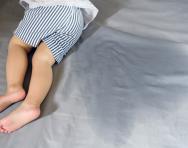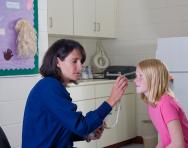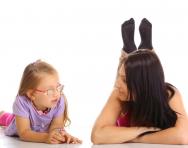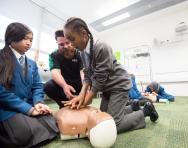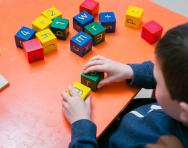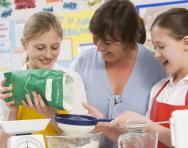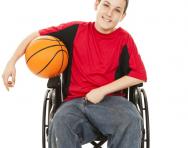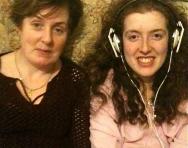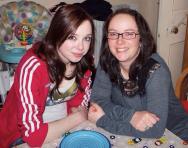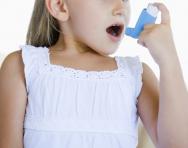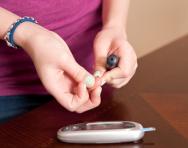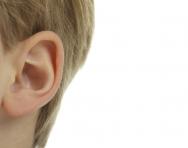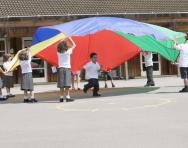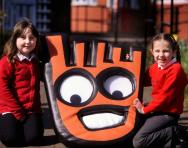Children's health articles
Bedwetting in school-age children
Around 12 per cent of children still wet the bed when they're primary-school age. Bedwetting can be embarrassing and upsetting for children, but it can be treated. We asked specialist continence nurse Brenda Cheer for her advice.
Catching up at school after a long absence
From making up missed work to fitting back in with friends, how can children reintegrate at school after weeks away?
Keeping up at school during a long-term absence
Falling behind at school can be an extra thing to worry about if your child is on extended sick leave, but there are ways to help them stay up to date.
What is CAMHS?
Child and Adolescent Mental Health Services provide help for young people suffering a range of difficulties. We take a look at how they could help your child.
Helping your primary school child with exam stress
With increasing numbers of children suffering the effects of test anxiety, how can you help your child keep their nerves under control?
How a school nurse could help your child
School nurses play a vital role in linking the two important areas of education and health. We explain what their role involves and when you might need to see one.
What is selective mutism?
Around one in every 140 children suffers from this debilitating anxiety disorder. We explain the symptoms, causes and treatment.
Help your child cope with difficult feelings
Watching your child deal with friendship problems, anxiety, bullying and bereavement is very difficult, but you can help them develop coping strategies and boost their resilience, says former primary-school teacher and author Avril McDonald.
Helping your daughter cope with periods at primary school
With children going through puberty earlier than in previous generations, how can you support your primary-school child when she starts her periods?
What is an Education Welfare Officer?
If there are concerns about your child’s school attendance, you might be referred to an Education Welfare Officer. We explain their role.
How to help your child with anxiety
Anxiety is on the rise amongst primary school children, but, with the right support, they can overcome it.
The parents' guide to the flu vaccine
This autumn all children in Reception to Year 6 (as well as those aged two to four) will be offered a free flu vaccine. We explain the facts parents need to know about the 'jab'.
Speaking and listening skills for SEN kids: parents' tips
Communicating effectively is hard for all of us, but children with special educational needs can find it particularly challenging. Help them practise their skills and boost their confidence with practical communication tips from parents from the disability charity Scope’s online community.
9 secrets of stress-free school mornings
Do you ever feel like a stuck record, shouting instructions at your child in an attempt to leave the house on time? We reveal the tactics that could transform your morning routine.
Positive mental health tips for parents of SEN children
If your child has special educational needs it can be particularly hard to identify mental health difficulties. Help them express their feelings and cope with life's ups and downs more effectively with these practical tips from parents from the disability charity Scope’s online community.
Autism and ADHD in girls
Spotting the signs of autism and ADHD in girls can be difficult, and getting a diagnosis even harder. So how can you tell if your daughter has one of these supposedly male-dominated conditions?
Essential first aid skills for your primary school child
Learning a few basic skills could help your child make a real difference in an emergency. St John Ambulance offers some advice on the first aid techniques that could turn them into a lifesaver.
What are school entry health checks?
Soon after starting school your child’s weight, height, vision and hearing will be tested, but what do these checks actually involve?
Individual healthcare plans explained for parents
Individual healthcare plans are designed to keep children with medical conditions safe, well and involved at school. We explain how these important documents work.
The SEN code of practice 2014: what it means for your child
The special educational needs system underwent its biggest reform in 30 years from 2014. We explain the main changes and how they could affect your child.
5 back-to-school breakfasts to boost body and brain
Finding it hard to get the brain back into gear every morning? Kate Percy, author of Go Faster Food for Kids, brings you her top three performance-boosting “back-to-school” breakfast recipes, plus expert tips to turn your kids' breakfast into a nutritional powerhouse.
Cooking and nutrition in primary schools
For the first time ever, practical cookery lessons are compulsory in primary schools. We explain what your budding MasterChef might learn.
Active and inclusive: PE provision for children with disabilities
Andrew Shields examines PE provision for children with disabilities and highlights the opportunities that now exist to play sport both in school and outside the classroom.
Free school meals: your questions answered
Since September 2014 all children in Reception, Year 1 and Year 2 have been entitled to a free school meal at lunchtime, plus some children in KS2 and beyond. But what's on offer, and what if your child prefers packed lunches? We answer all your questions.
7 easy energy-boosting after-school snacks
After school the first words to come out of most children's mouths are "What have you brought me to eat?". Sort out the hunger pangs, energy slumps and general moodiness with some healthy but delicious snacks as suggested by Kate Percy, author of Go Faster Food for Kids and mum of three.
"She has had to work two or three times harder than her peers"
Helen Barylo from Coventry describes her experience of the SEN and school system with her son Aurora, 16, who is dyslexic, and shares her tips for other parents.
"She would never rest or stop talking"
Teresa Catto-Smith from Perth, Scotland, describes her experience of the SEN and school system with her daughter Leanne, 19, who has ADHD (Attention Deficit Hyperactivity Disorder), and shares her tips for other parents.
"We'll work together to develop his organising and planning skills"
Susie McCrae from Edinburgh describes her experience of the SEN and school system with her son David, 9, who has Developmental Coordination Disorder / dyspraxia, and shares her tips for other parents.
'The school worked with him to strengthen his motor and social skills'
Jane Burbridge from Folkestone describes her experience of the SEN and school system with her son Andrew, 7, who has Autism Spectrum Disorder (ASD), and shares her tips for other parents.
Managing asthma in primary school
Managing asthma at school can be a challenge, but new legislation will ensure that children with long-term health needs receive extra support. Jo Willacy reports.
Sex and relationships: how to talk to your primary-school child
How should you discuss the birds and the bees with your child and when, and what can you expect your school to provide in terms of sex and relationships education? We asked the experts for their guidance for the primary-school years.
Dealing with anaphylaxis in schools
If your child suffers from a severe food allergy, sending them to school every day can be a daily battle of trust. Jo Willacy takes a look at policy, action plans and training for parents and school staff to help tackle allergy management concerns.
Managing diabetes at school
If your child has diabetes, which is a condition when the body doesn’t produce enough insulin, you want to know that they’ll be as healthy and safe as possible at school. We share tips about drawing up a care plan, communicating effectively with school and raising awareness of diabetes with teachers and carers.
Glue ear: all your questions answered
Children afflicted by glue ear can have a miserable time at school, but the nature of the condition means many parents and teachers may not even guess that a child is suffering. Moira Holden looks at the causes of glue ear and how it can be treated.
6 primary-school health concerns parents need to look out for
The days of colic and cradle cap may be long gone, but your primary school child is now susceptible to a different range of health issues. From tummy bugs and nits to emotional health concerns, Lucy Dimbylow looks at what you need to know to keep them safe and well.
5 ways to teach relaxation skills to your child
Knowing how to keep calm in emotionally difficult situations is an important life skill that’s never too early to learn. Even if you don’t feel you’ve mastered it yourself, you can still help your child manage their stress levels – and perhaps improve your own stress management in the process. Educational psychologist Lisa Gupta lends her top tips for parents.
Improve your child’s speech and language skills
Significant numbers of children start primary school in England with difficulties with speech and language. Here’s how you can support your child.
Is your child getting enough sleep?
Is your child overtired – or not tired enough? Here’s how to make sure they’re getting the right amount of sleep for their age.
7 vital road safety skills you must teach your child
Worried about your child walking to school on their own? Help them become street savvy during Walk to School Month by teaching them these key principles of walking safely.
Growing pains explained
Aches and pain don’t just happen in your 80s – children can experience strong twinges and throbbings, which can even wake them up at night. Dr. David Shortland explains how to help your child through it.
